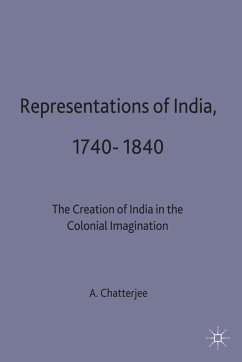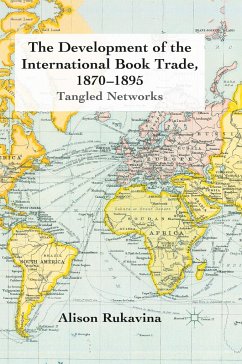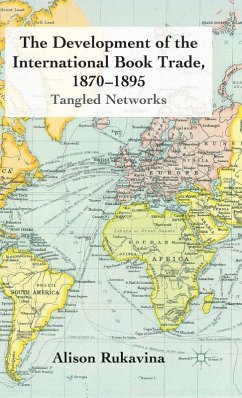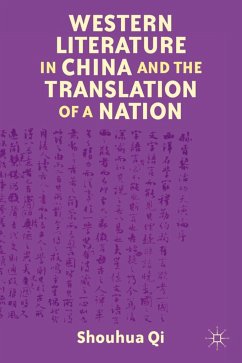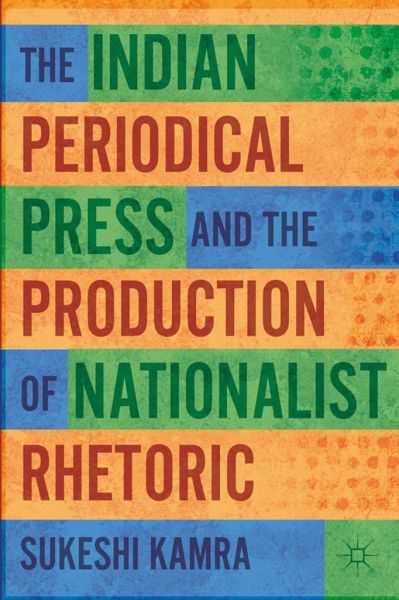
S. Kamra
Gebundenes Buch
The Indian Periodical Press and the Production of Nationalist Rhetoric
Versandkostenfrei!
Versandfertig in 6-10 Tagen
Weitere Ausgaben:

PAYBACK Punkte
19 °P sammeln!





Considers the Indian periodical press as a key forum for the production of nationalist rhetoric. It argues that between the 1870s and 1910, the press was the place in which the notion of 'the public' circulated and where an expansive middle class, and even larger reading audience, was persuaded into believing it had force.
SUKESHI KAMRA Professor ofEnglish at Carleton University, Canada.
Produktdetails
- Verlag: Palgrave Macmillan / Palgrave Macmillan US / Springer Palgrave Macmillan
- Artikelnr. des Verlages: 978-0-230-11659-7
- 2011 edition
- Seitenzahl: 236
- Erscheinungstermin: 30. November 2011
- Englisch
- Abmessung: 211mm x 140mm x 20mm
- Gewicht: 439g
- ISBN-13: 9780230116597
- ISBN-10: 0230116590
- Artikelnr.: 33723176
Herstellerkennzeichnung
Libri GmbH
Europaallee 1
36244 Bad Hersfeld
gpsr@libri.de
"Meticulously researched, theoretically sophisticated, and elegantly written, this is an innovative and imaginative study of the role played by the Indian Press in the making of an anti-colonial Indian nationalism during and after the 1870s. Drawing on government surveillance reports on the press and the wide range of Indian newspapers, Kamra makes known the alarm of the British bureaucrats and the aspirations of the journalists, describing this as one of the many dramas played out during the Indian nationalist struggle. Although without an identifiable constituency, the columnists imagined a public whose aspirations they claimed to voice, and in the process created an incipient public sphere and political culture. In showing how the
Mehr anzeigen
oppositional substance and tone of many articles and the patriotic rhetoric of self-determination reached and fed into the popular protest of the illiterate, Kamra properly assigns agency to the masses, too often occluded in accounts of anti -colonial nationalism. At the same time she is unsparing in her observations that writings emanating from an educated elite were spoken in accents of cooperation as well as insurrection. The book is a significant contribution to the large field of resistant nationalisms and will be of in interest to literary scholars as well as historians and political scientists." - Benita Parry, professor of English, Warwick University"This is a valuable contribution to the history of print and its role in the constitution of the modern public sphere. Bringing to bear the critical lens of postcolonial cultural studies on a rich array of archival materials, Sukeshi Kamra's account of British colonial surveillance in the late nineteenth century provides key lessons about the double-edged function of the press in political culture. Kamra's cogent analysis and keen sense of where the fault lines lie bring into sharp relief the startling turnabouts of power and tactics between the rulers and the ruled. Documenting the inevitable rise of public opinion, public sphere and a public despite the expansion of coercive state mechanisms, this book is an important repositioning of key debates about Indian nationalism. It is a welcome addition to existing scholarship on the historical conjuncture of print capitalism, the middle class, the nation state, and democratic politics." - Betty Joseph, author of Reading the East India Company 1720-1840: Colonial Currencies of Gender
Schließen
Für dieses Produkt wurde noch keine Bewertung abgegeben. Wir würden uns sehr freuen, wenn du die erste Bewertung schreibst!
Eine Bewertung schreiben
Eine Bewertung schreiben
Andere Kunden interessierten sich für




